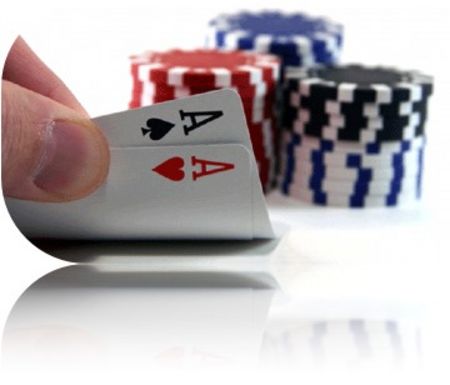Stack Sizes

Just like in live ring games, stack sizes can sometimes tell you something about
your opponents. In general, the better players have larger stacks and the weaker
players have smaller stacks for several reasons:
-
The better players generally win, so they tend to have a large bankroll.
- The weaker players generally lose, so it is natural that their bankrolls are
often small.
- Many weak players who play small limits will sometimes jump up a limit to try
their luck, and usually don't have an adequate bankroll for the limit they are
playing.
Of course these are all generalizations. Good players have bad runs and poor
players have good runs. But you can get a quick generalization about new
opponents by looking at their stack size when you first sit down at the table. This is
especially true at the higher limits, which require more bankroll to play. Of course,
after a few minutes of playing an opponent your impression may change, but at
least you have something to go by when you first sit down.
There are generally two different playing styles for players with small stacks. The
first type is someone who plays a lot of hands, which is probably why his stack is so
low. The other type of player is one who just moved up from a lower limit game.
This player probably is playing very tight since he is scared of losing a lot of money.
With either type of player, you can use this information to your advantage. Play
aggressively against the scared player and don't try to bluff the loose player.
The one exception to this rule is when their stack becomes so low that they will go
broke with just a few more bets. In this case, both types of players generally tighten
up a lot waiting for that big hand. Now you can be aggressive both preflop and flop.
Be inclined to try and steal their blinds. On the flop, try to be the aggressor and then
back off if your opponent either bets first or raises. Since he is playing survival
poker, it is doubtful that he is bluffing. I love playing against very small stacks! An
aggressive style against these opponents will usually reap good rewards, and the
risk is small since you can back off if your opponent shows any signs of strength.
Regarding your own stack, avoid playing with a stack so small that you can-not get
full value out of a big hand. If you are playing $10-$20 and your stack gets down to
$100, you could easily run out of chips by the end of the hand. If you are playing a
tight aggressive strategy recommended in this book, you do not want this to
happen. If at all possible, always re-buy chips to add to your slack before you gel
too low. This means a minimum stack of 10 times the big bet. So in a $10-$20
game, you need at least $200 in your stack before any given hand.
You never know when you will hit a monster hand against a maniac who keeps
raising you back. Although 10 times the big bet is the minimum I recommend, I
prefer to sit down with at least 40 times the big bet to minimize the chance that I
might have to add chips later.
NEXT...Multiple Tables

